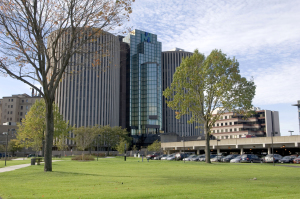Whether you are trying to remember a large amount of information to add to your readily available storehouse of knowledge, or you want to prepare for a seamless presentation, the memory palace technique can help. This ancient practice was used when knowledge could only be shared verbally from person to person, and a great amount of information was stored in this manner.
A group of researchers at the University College London have studied competitive memory champions, people who memorize large amounts of meaningless information such as telephone books and lists of random numbers, to see if their brains are structurally different than the average person, or if they have higher IQ scores. They found both of these factors not to correlate with more ability to memorize, but rather, when memorizing, the competitive memory champions used areas known for spatial memory and navigation, where the control subjects did not.
The key, according to Joshua Foer, a journalist whose interest in memory championships led him to learn the techniques and win the United States Memory Championship after a year of practice, is to translate information into meaningful images. The memory palace is one technique for doing so.
First, select a familiar place with many rooms that you can vividly picture, such as your home or workplace. Then, chart a specific route through every room, always starting in the same place, following the same path, and ending in the same spot. Then, note the features of the room, such as the furniture and décor. See each item as a memory slot where you can store information. Then, associate things you want to remember (vocabulary, topics of a presentation, or items on your to do list) with these features. Locate them on the route in the order you want to remember them. The key is to make things memorable, so exaggerating images and using humorous pictures is helpful. Next, start at the beginning of the route and remember each feature that you want to readily recall.
The next time you are planning a speech, presentation, or need to memorize important information, give the memory palace a try. The ability to memorize large amounts of information is an underused human ability, but one with enormous potential. If three-time World Memory Champion Ben Pridmore can memorize 36 decks of shuffled playing cards in one hour, it seems the mind’s storage capabilities are almost endless.

